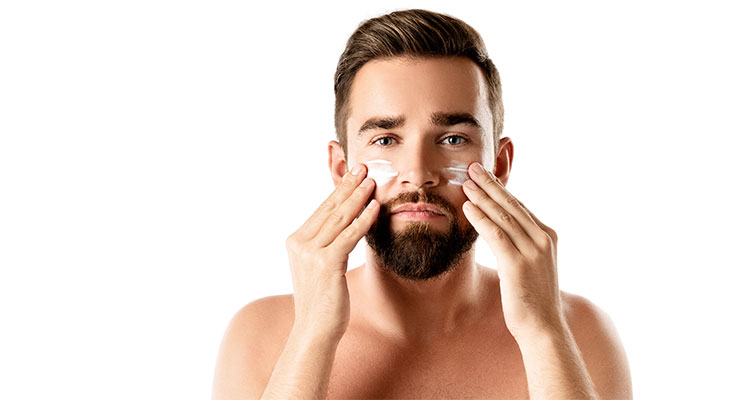The Importance of Sustainability in Beauty Products for Retailers
In today’s market, sustainability is more than just a trend—it’s a movement that’s reshaping the beauty industry and consumer expectations. With growing awareness around environmental issues, more consumers are seeking eco-friendly beauty products, making sustainability a significant factor for retailers in the beauty space. Here’s why sustainability in beauty products is vital for retailers and how it can drive both customer loyalty and long-term business growth.
1. Meeting Consumer Demand
Sustainable beauty products are no longer a niche market; they are increasingly mainstream, especially among environmentally-conscious millennials and Gen Z consumers. These groups prioritize brands that align with their values and are actively looking for products that are responsibly sourced, cruelty-free, and packaged in eco-friendly materials.
- Key Insight: According to recent studies, up to 73% of global consumers are willing to pay more for sustainable products. Retailers that cater to these preferences can capture a larger, loyal customer base that values ethical practices.
2. Reducing Environmental Impact
The beauty industry has historically contributed to environmental damage through excessive plastic packaging, microbeads in exfoliants, and water-wasting production processes. By stocking sustainable products, retailers can actively reduce their environmental footprint and promote more eco-friendly practices within the industry.
- Example: Sustainable beauty products often use recyclable or biodegradable packaging, such as glass, paper, or aluminum, which reduces plastic waste and lowers carbon emissions.
3. Building Brand Loyalty
Consumers are more loyal to brands that demonstrate a commitment to sustainability. By carrying sustainable beauty products, retailers show that they prioritize the environment and social responsibility, which resonates with conscious consumers and fosters long-term brand loyalty.
- Key Insight: Sustainable initiatives like refill stations, packaging take-back programs, or rewards for eco-friendly purchases can further strengthen customer loyalty and encourage repeat purchases.
4. Staying Competitive in the Industry
With major brands increasingly focusing on sustainability, retailers must adapt to stay competitive. As leading companies set new standards in sustainable beauty, retailers who don’t carry environmentally-friendly products risk falling behind in a rapidly changing market.
- Example: Retailers that carry beauty products with certifications like Fair Trade, Organic, or Cruelty-Free can attract environmentally-conscious consumers who seek out brands that meet these high standards.
5. Supporting Transparency and Trust
Sustainable brands often focus on transparency, which builds trust with consumers who are concerned about ingredient sourcing, ethical labor practices, and production methods. Retailers that stock these products benefit from this transparency and enhance their credibility in the eyes of consumers.
- Example: Many sustainable beauty brands disclose detailed information about sourcing, manufacturing processes, and ingredient lists, allowing consumers to make informed choices.
6. Promoting Healthier, Safer Ingredients
Sustainable beauty products frequently prioritize natural, non-toxic ingredients that are better for both consumers and the environment. This emphasis on “clean” beauty helps reduce the use of harmful chemicals in products, leading to safer options for customers.
- Key Insight: Offering sustainable products with fewer synthetic chemicals can attract health-conscious consumers looking for gentle, non-toxic beauty solutions.
7. Adapting to Regulatory Changes
Governments and regulatory bodies around the world are increasingly implementing environmental regulations, including restrictions on plastic use, requirements for eco-friendly packaging, and bans on certain chemical ingredients. By focusing on sustainability now, retailers can stay ahead of these changes and avoid disruptions.
- Example: In the EU, the single-use plastics directive requires reductions in plastic packaging waste, which impacts beauty products. Retailers who are proactive with sustainable practices are better prepared for such regulations.
8. Contributing to Social Responsibility
Sustainability goes beyond environmental concerns; it also encompasses fair labor practices, community development, and ethical sourcing. Many sustainable brands support local communities or engage in fair trade practices, creating positive social impacts.
- Key Insight: By choosing to stock brands that focus on social responsibility, retailers can make a positive difference in global supply chains, supporting ethical business practices that consumers increasingly value.
9. Creating Opportunities for Innovation
Sustainable beauty products often embrace innovative formulas, ingredients, and packaging solutions, making them stand out in a crowded market. Retailers can leverage these unique products to differentiate themselves, attracting customers who are looking for cutting-edge and eco-friendly options.
- Example: Products like waterless beauty bars, solid shampoos, or concentrated formulations appeal to eco-conscious consumers while reducing water usage and packaging waste.
10. Enhancing the Shopping Experience
Sustainability initiatives, such as offering reusable shopping bags or refill stations, can create a memorable and positive shopping experience that aligns with eco-friendly values. When retailers create a sustainability-focused shopping environment, they help customers feel good about their purchases.
- Key Insight: This approach can encourage shoppers to return for their beauty purchases, as they see the retailer as an extension of their own values and sustainability efforts.
Conclusion
For retailers, incorporating sustainable beauty products is not only about following trends; it’s a strategic move that aligns with long-term consumer demand and business growth. By offering eco-friendly and ethical products, retailers can attract conscious consumers, reduce environmental impact, and foster brand loyalty. In an era where sustainability is paramount, adapting to this shift helps retailers position themselves as leaders in a more mindful and responsible beauty industry.







